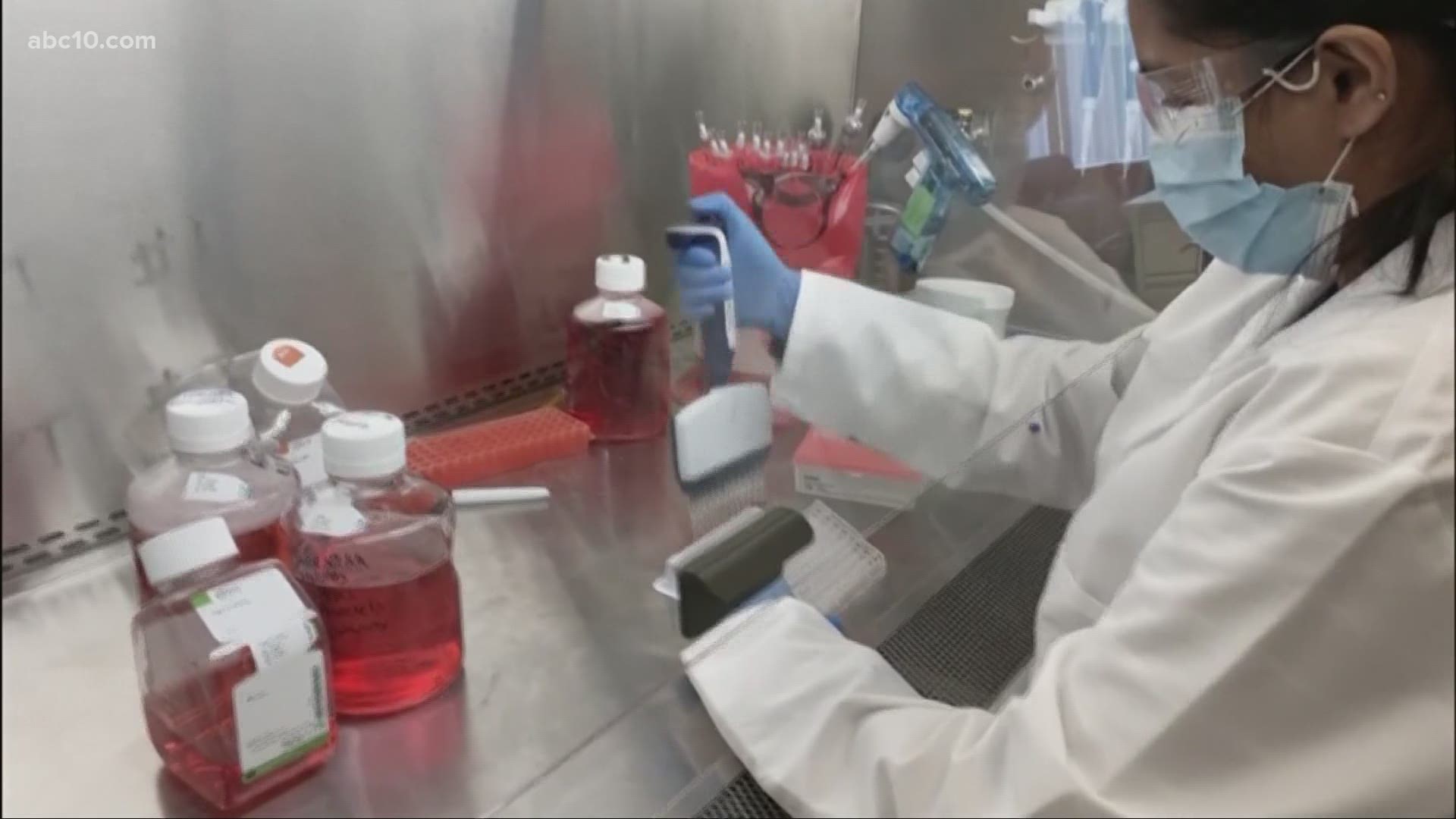CALIFORNIA, USA — About three months ago, Marites Ramos rolled up her sleeve to receive her first Pfizer vaccine trial shot at UC Davis Health.
"There was no hesitation," Ramos said. The medical assistant from Sacramento said she wanted to contribute to historic, life-saving research.
Ramos, now, has had both shots.
"No side effects. I feel great," she said.
Ramos doesn't know if she received a placebo or the real thing, but she does know there's been a lot of concern surrounding the vaccine. She gets questions from family and friends all the time, and she tells them that the immunization outweighs the risk of side effects.
"For me, it's... so that I can have that reassurance that I can come home to my family," Ramos said. "I work in the pulmonary clinic, and I could get the virus and give it to them. I want the reassurance that I don't need to worry about exposing them to that."
UC Davis Health in Sacramento was one of the sites where pharmaceutical company Pfizer launched its vaccine trial back in August.
Now, the US Centers for Disease Control and Prevention is just over a week away from deciding whether to allow Pfizer emergency use of its vaccine.
On Monday, Ramos was elated when Governor Gavin Newsom announced the state is on track to receive 327,000 vaccines from Pfizer by Mid-December. And Moderna, right behind it.
"Now we get a better sense of what's available for the first round! so what's the priority for 327,000 doses?," Newsom said.
The CDC will be meeting Tuesday to discuss who should be first in line to receive the vaccine, although it's ultimately up to each state to decide for itself. Newsom said in a press conference Monday that guides for prioritizing specific groups of health professionals in "priority group 1A" will be released this week.
While it's all but certain medical workers will be in the top-priority group, the CDC said the next group could include other essential workers like first responders, educators, and those in food and agriculture, plus, people with high risk medical conditions.
Even with the promising timeline, there are challenges. In a report published Monday, the Congressional Government Accountability Office said a third of states are concerned about supply shortages while administering vaccines.
While the federal government aims to ship vaccines within 24 hours of an emergency use approval, analysts also said there's concern about storage on the local level. The Pfizer vaccine, for example, requires ultra cold storage.
"We're going to do the dry-ice option," said Clint Hopkins, a pharmacist in Sacramento.
Hopkins said those specialty freezers are extremely expensive, and he is already working out contingency plans to store and administer vaccines at his small, independent pharmacy.
ABC10: Watch, Download, Read
WATCH ALSO:



















